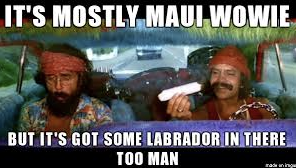The legalization of weed has been a tricky subject for as long as anyone can remember. The advocates are gradually starting to win, with more than 31 states legalizing and decriminalizing the substance. However, the battle is far from won because marijuana is still illegal on a federal level. This makes its use complicated, even in states where it’s legal.
Here are seven things to know if marijuana has been legalized in your state.
You can’t transport it across state lines.
Marijuana is still illegal federally and is classified in the same category as heroin. As a result, you can’t take it across state lines, even if you’re traveling between two legalized states.
This rule applies to traveling by car, airplane, boat, or anything else. You may be liable to face punishment under federal law if caught.
Thankfully, you don’t need to take it out of your state. The solution is as simple as buying some more once you get to your destination. The only downside is that they may not have the variant you’re looking for.
You could get fired for smoking marijuana.
The law for marijuana use in the workplace is unusual. Imagine that you work in California, where the substance is fully legalized. If your employer administers a drug test and you fail, they can still fire you. While they aren’t required to, they certainly have legal grounds.
You have the conflict between state and federal laws to thank for this caveat. Many individuals have sought to fight back by suing employers for denying them employment. Unfortunately, the complex state-federal law relationship kicks in, and it turns out to be a long legal battle.
The moral lesson is to avoid failing workplace drug tests if you can.
Riding while smoking is tricky.
Wherever you go, driving under the influence of a substance will always be illegal; everyone knows this. But then, what about riding shotgun under the influence? You’d think the law would be straightforward, but as we’ve learned, nothing is ever straightforward with marijuana.
In some states, like California, you can’t have an open package of marijuana while riding shotgun. On the other end of the spectrum is Nevada, where you can have an open package and even smoke marijuana as a passenger.
Some other states are in the middle, like Arizona. In Arizona, you can have an open container of marijuana as a passenger, as long as you don’t consume it.
Many marijuana stores only accept cash.
Banks and marijuana stores have a strained relationship. Since the substance is illegal federally, most banks won’t take the business of dispensaries since the federal government regulates them. This means your favorite store will only accept cash for your purchase.
A few years ago, the justice department issued guidelines for banks who wanted to deal with marijuana dispensaries without crossing the federal government. While many of them took this opportunity to provide service, some institutions are still wary.
Legalization is very different from medical use.
Both of these terms may sound like it’s okay to take marijuana. However, there are some stark differences, and knowing them can keep you from facing penalties. Marijuana legalization refers to the removal of government-enforced penalties for possession and use. In legalized states, marijuana can be sold and home-grown without consequences.
Medical use, on the other hand, is very different. In states like Texas, you can only obtain medical marijuana if a doctor prescribed it.
Doctors can prescribe marijuana for multiple conditions, including chronic pain, PTSD, and inflammatory bowel disease. If you suffer from any of these conditions, you can most likely get marijuana without trouble.
Interestingly, some state’s medical marijuana restrictions have become so lax that it’s more or less legal. This doesn’t mean you may not get in trouble, but the odds are very low.
You may need a medical marijuana card.
A medical marijuana card (MMID) has the power of a doctor’s prescription and a credit card’s durability. In states that have legalized the substance for medical use, an MMID card can make it easier to buy marijuana.
With an MMID card, you won’t need a prescription every time you want to stock up or refill. You can simply walk into the store, present your card, and buy all the marijuana you need.
The card has other benefits, like a lower age requirement from 21 to 18 in some states, lower taxes on your purchases, and access to nearly all variants available.
It’s important to note that specific terms apply to the use of an MMID. For example, you can only buy marijuana in some states if you meet specific conditions. In Arizona, you’re only eligible if you’re suffering from a severe disease like HIV/AIDS, Hepatitis C, or others.
The good news is that you can process your MMID online by following some simple steps, including gathering required documents and speaking to your physician. Find out more on how to get an MMID card here.
You could lose subsidized housing privileges.
This is based on the fact that marijuana is illegal in the federal government’s eyes. People seeking subsidized housing privileges could be denied it if they use marijuana. If you already secured the subsidized housing, you could also lose it and get evicted.
Luckily, this comes with a caveat. Public housing authorities don’t have to evict you for using marijuana. Even though they are within their legal rights to do so, they can decide against it. Like workplace marijuana use, it may come down to your housing provider’s mood.
The Bottom Line
Marijuana laws have always been dicey, and they may continue to be for the foreseeable future. But then, there’s hope because the laws are constantly being reviewed. In the meantime, it’s essential to know what your state laws say about marijuana use. Not only will this knowledge keep you out of trouble, but it may also show you new ways to enjoy the substance.

















